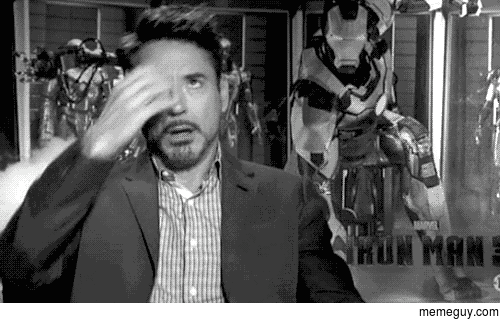Because it's been a recent issue where they are losing people to the internet for content that that make the most money from.
Are you saying they didn't want
more money before? Because the entire argument here is predicated on how relentlessly greedy corporations are, yet it asks people to buy the idea that they never decided to charge more without this law, even though they could have. That doesn't wash.
The absence of these things all the way up until 2015 is a massive problem for the kinds of over-the-top rhetoric net neutrality advocates are spreading around right now.
Has the internet changed in your opinion? How has it affected you, if at all?
I don't wanna brush this off, but it's a very broad question and I can't say I see how it ties back into this issue, so can you explain what you're asking/why?
Comcast owns Hulu, it makes sense for them to want to throttle rival content provider Netflix so people flock to their side, or simply make them pay a premium, which makes subscription costs go up. Either way the consumer gets the short end of the stick.
Have you noticed that everybody and their mom's dog is starting a streaming service? If that's happening
now, in absence of this throttling, why do you think there's insufficient market demand to incentivize streaming alternates in a world where it
does start happening?
Something like this is always going to be my follow-up question, by the way: every time you posit that some ISP is going to do something you (and others) hate, the next question is always going to be: and how are customers and competitors going to respond to that? Because the nightmare scenarios people are sketching out all seem to rely on the idea that we're bound to our ISPs for life.
Comcast was fined by the FCC for charging customers for content they never even bought in the past. It makes sense they would want to charge people for things they use now, if they tried to charge them for things they didn't then.
Again, the idea that they'd like to make more money is not in dispute, and is in fact the entire point. Massively pissing off your entire customer base has never made anyone more money. Usually not even in the short run, and never in the long run.
Except they would be paying more than they do now. Right now they pay based on their speed and bandwidth...not for the extra content.
Again, everything is free to everyone. You'll be paying more for less.
Completely different. I have a data cap on my internet. I have a data cap on my cell phone. It's content driven that would be blocked not data as you try to argue here.
That's not my argument. My argument is that
the rules also end up applying to data management. I've already explained how in one regard: throttling based on content type is necessary and rational, and sites like Twitch already do it internally to create the best experience.
The other problems are a bit more indirect, but still important: I mentioned earlier that some cell phone carriers are partnering with streaming services like Netflix so that anything streamed through them doesn't count towards data usage. It's a cool idea that consumers seem to like: nothing unfair or sneaky about it, yet it would seemingly be illegal under this law. Does that seem right to you?
Ditto if somebody's grandparents just want to use Facebook to talk to their family, without having to think about data caps, or without paying $60-70 a month for all sorts of stuff they'll never use. Wouldn't even be legal to offer this as an
option, even with an unrestricted choice as well. Does that seem right to you?
People pay for speed, not content, which is what TV packages are. I have the basic cable plan with Bell and I get channels I do not want. There are channels out there I do want, but that would mean paying more money. The internet cannot be compared to television as I do not communicate with family, friends and share ideas, content and whatever through television.
The fact that they provide different services doesn't change the fact that the underlying economic realities are the same.
But let's take another plan that lets you "communicate with family, friends and share ideas." Cell phones. Have you ever been on a cell plan that gave you unlimited minutes to a certain group of frequently called people? Or how about free "in network" minutes? Same thing. That's discrimination based on content. Would consumers be better off if those promotions were illegal?
Are you fine with paying extra to keep this site in the "fast lane".
Nope, but I bet I won't have to.
It boggles my mind that you are against an open internet.
If someone is against a law saying that all food items must cost $1, are they "against" food being cheap?
If someone has to pay extra to access Wikipedia, which is a wonderful website full of educational information, but that person can't afford it, then they are at a disadvantage.
If my argument is that X won't happen, I'm not sure I understand the goal of any response that consists of "are you really okay with X?"
I wouldn't be okay with movie theaters charging a billion dollars per ticket, either. And hey,
there's no law that says they can't. But they won't.
The picture that I posted is from Portugal. It's already happened.
Moderate debunking I found in 20 seconds.
Do you think anyone passing that image around, by the way, has any idea what the broadband infrastructure is like in Portugal, anyway?




